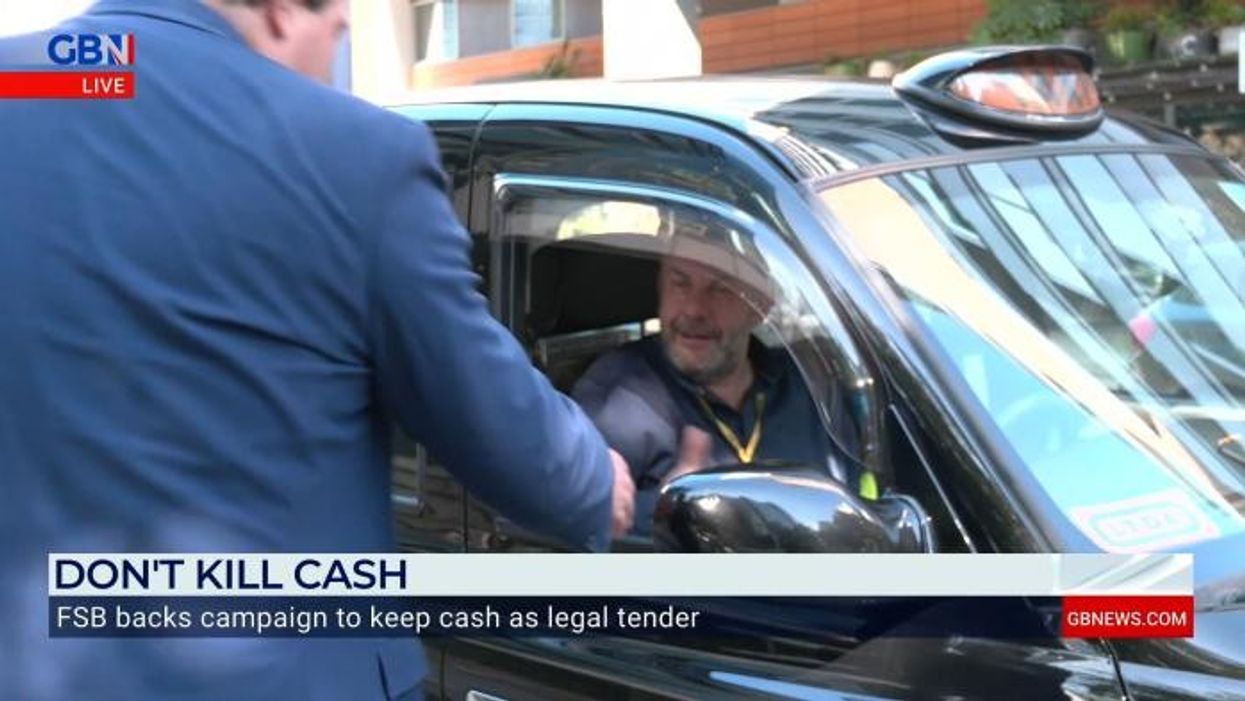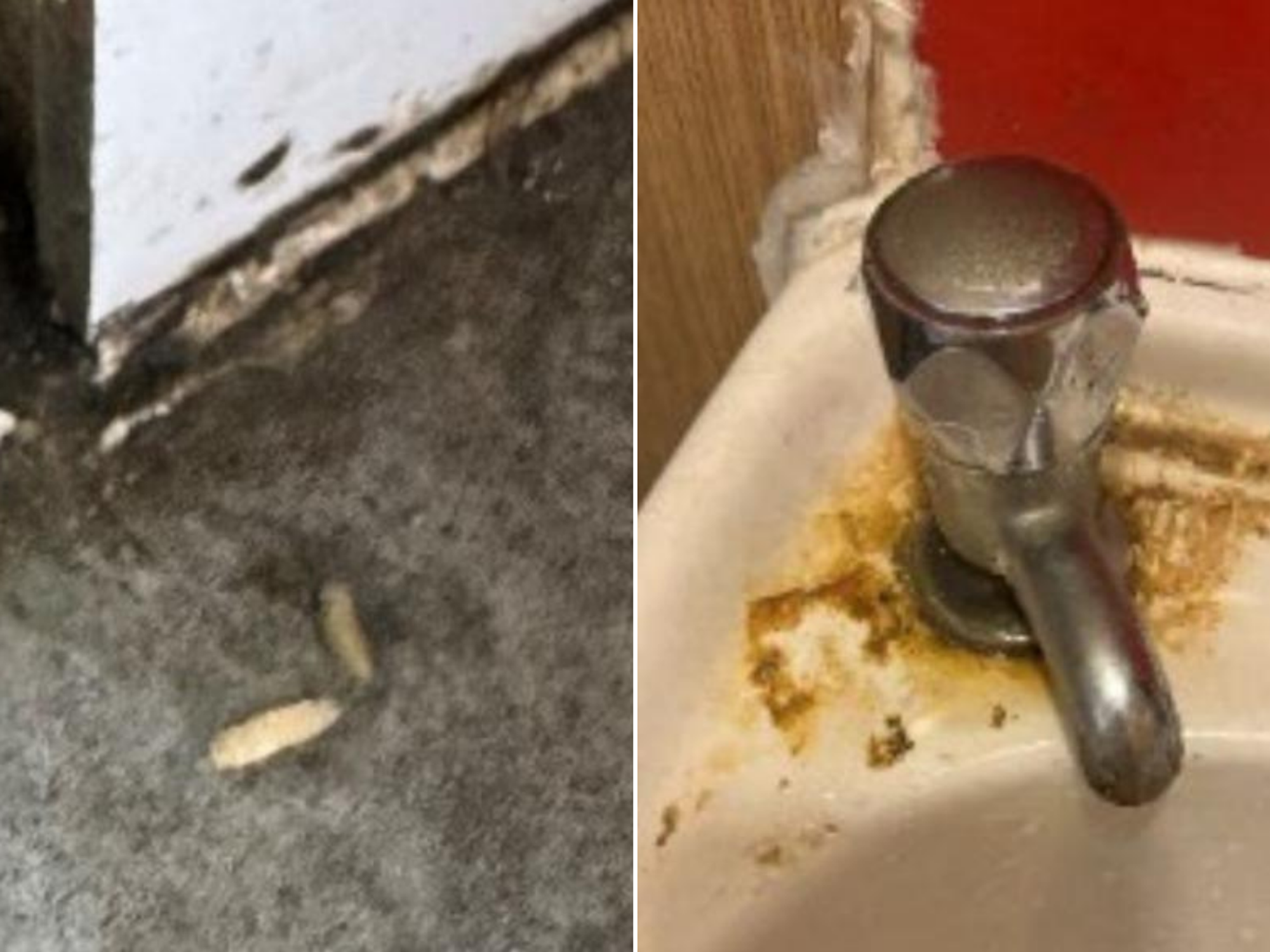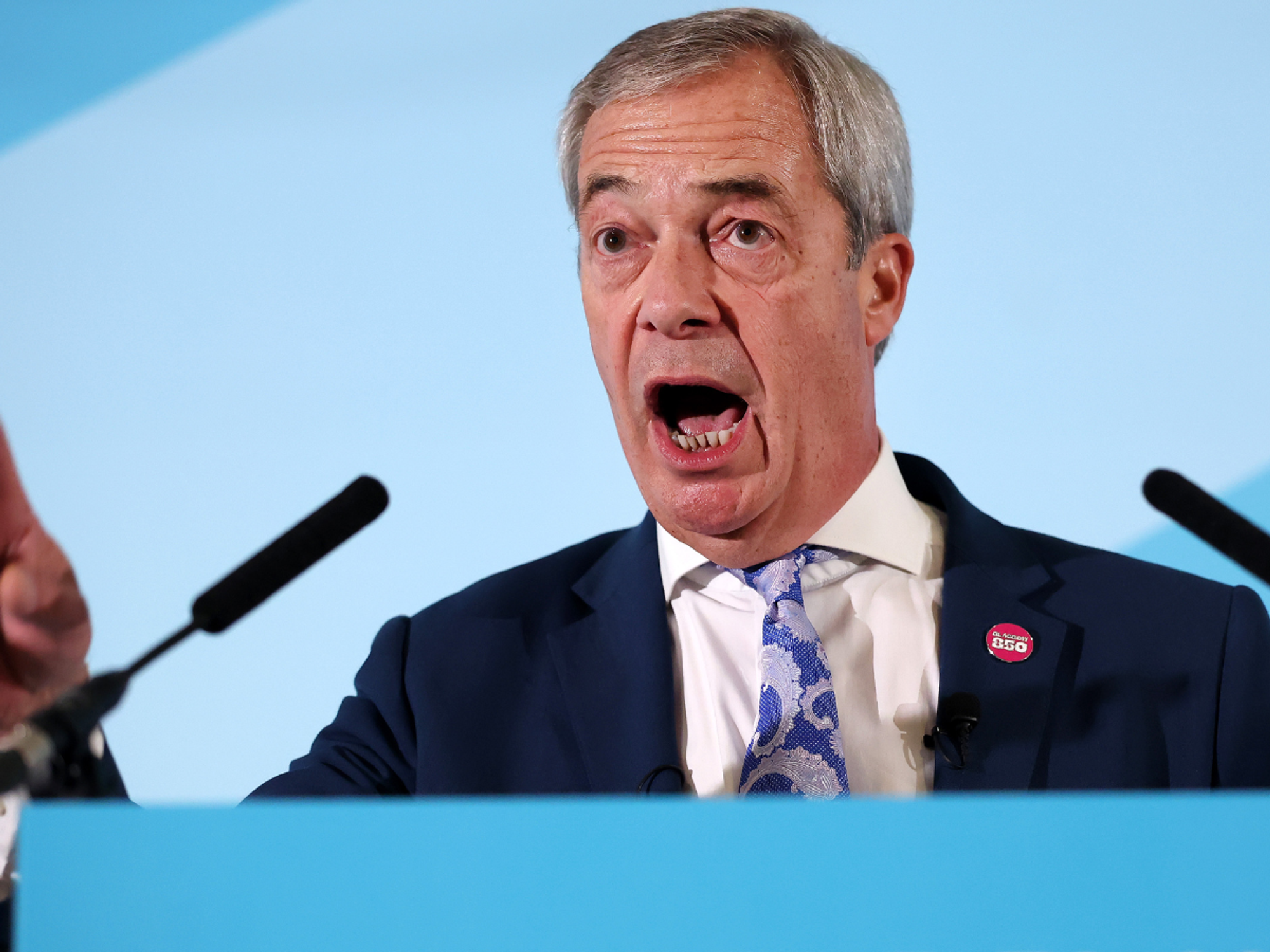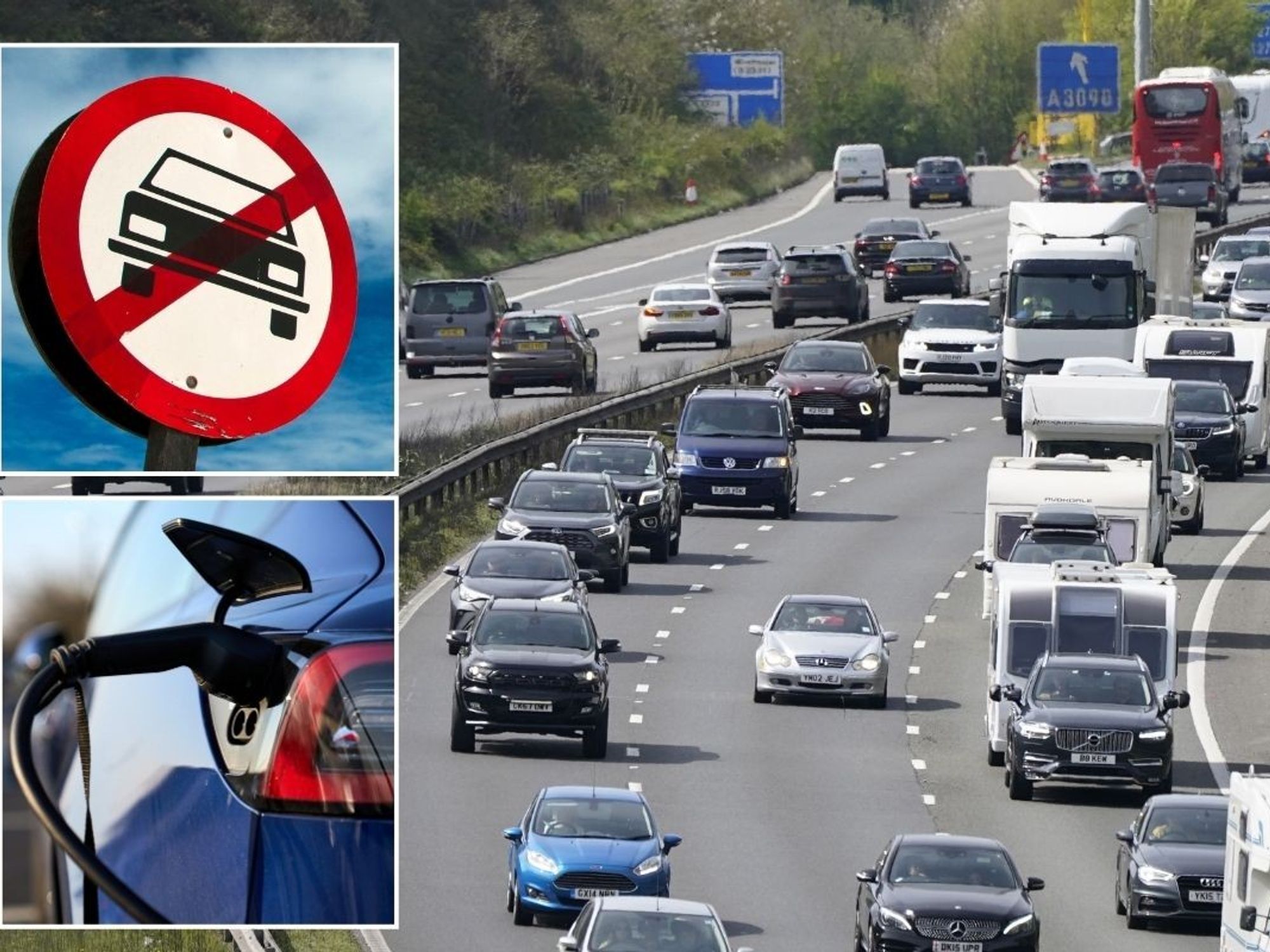Taxi driver fears card payment charges will soar as 90 per cent of his fares are by card

The cab driver has to pay a fee to the card payment facilitator on the money he makes via card.
Don't Miss
Most Read
A taxi driver fears charges for card payments could soar if the UK becomes a cashless society.
London cab driver Howard Taylor told GB News’ Liam Halligan that cash now accounts for just a tenth of the fares he makes each day.
With more and more customers choosing to pay with their cards, he – like many taxi drivers in Britain - now relies on card payments.
However, the company that facilitates the payments takes two per cent on everything he makes.
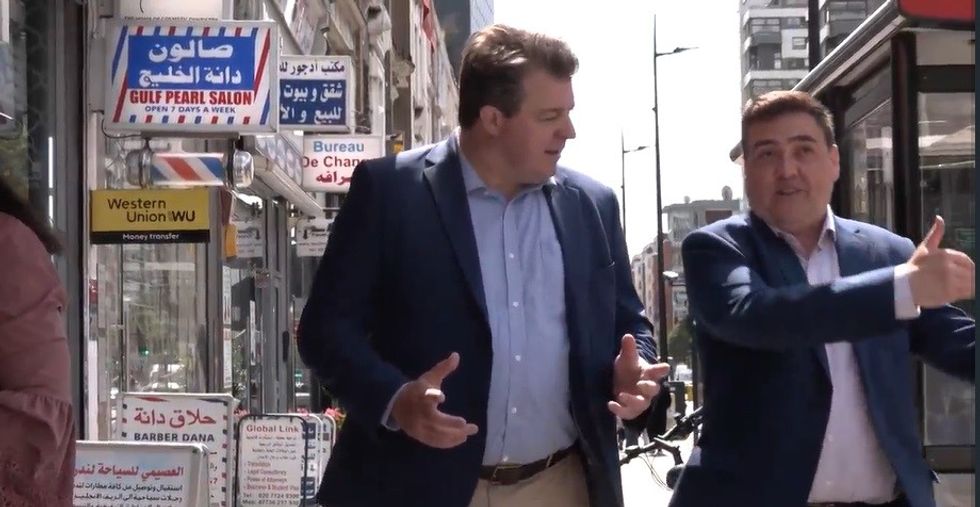
Liam Halligan spoke to people campaigning for the protection of cash
|GB NEWS
Mr Taylor said he’s worried that as cash disappears, card payment firms could increase how much they charge.
He said: “What happens in the future is anybody’s guess.
“When they’ve got the game to themselves and there is no cash, they can charge what they like – no one’s got any options.
“I don’t like anybody to have too much control over everybody else. Especially when you’re talking about something as basic as one’s finances.”
The Federation of Small Businesses also worries that card payment companies could increase their charges, which could be passed on in the form of higher consumer prices.
A spokesperson said: “If we ended up with a cashless high street, then that is a big competitor to the card companies in terms of a payment method gone.
“Without that competitor, naturally that gives them more of a monopoly position.
“And so it's not that much of a stretch of the imagination that they could then put up their fees because, for a retailer, they may have no other way of taking payments.”
What do you think about cash and card payments? GB News wants to hear from you. If you want to share your story, email money@gbnews.com.
LATEST DEVELOPMENTS:
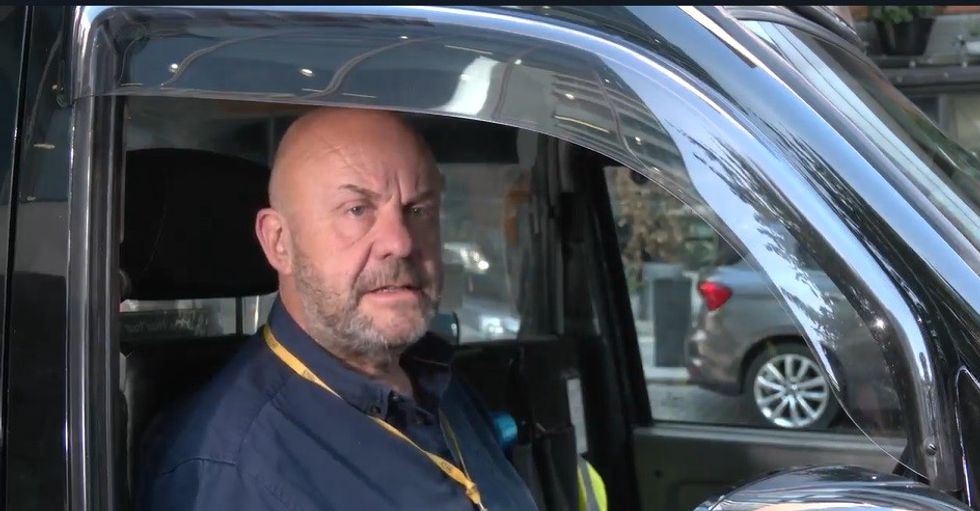
Howard Taylor shared his concerns about card payment charges in a cashless society
|GB NEWS
Amid fears card companies could potentially charge traders and taxi drivers more, financial consultants warn it’s already happening.
Payments and banking consultant Bob Lyddon said: “When as a seller, you make a sale on a card, you're supposed to get 99.8 per cent of the value if it's a debit card and 99.7 per cent if it's a credit card.
“But the industry, with the agreement of the regulators who are supposed to police this, allows that the deductions on card payments can go up to seven per cent.
“So it already is costing, that's a real danger.”
Card payment companies deny any abuse of market power.
A Payment Systems Regulator spokesperson said: "We have an important role to play in ensuring everyone has access to the payment services they rely on, as well as having a good choice of payment options.
"Cards are the most popular way for people to make payments in the UK, so it’s essential that the market is working well. We’re carrying out two market reviews investigating recent increases in card fees. These reviews will help us understand whether we need to take action to make sure businesses, and ultimately consumers, are getting a good deal when making or receiving a payment using a debit or credit card. We plan to publish our interim findings for these reviews later this year, which will outline any potential action we might take.
"We’re also focused on making sure there are suitable alternatives to card payments to boost competition and choice. We want to see open banking – a technology which allows third parties to securely send payments on a consumer’s behalf – provide another option for people to pay for goods and services. As payments develop and evolve, we want to ensure they remain inclusive.
"We know cash is still important to many, and the government has recently legislated to protect cash access. We’ll continue supporting the FCA, who is the lead regulator for this, and make sure the UK’s cash system remains sustainable through our regulation of LINK, the UK’s largest ATM network."


